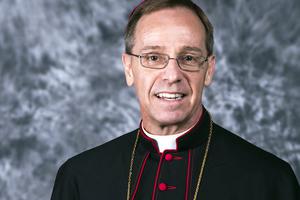New Jersey Catholic School Case Shines Light on the ‘Ministerial Exception’
COMMENTARY: ‘Hard cases make bad law,’ the saying goes. Sometimes, however, they make good law — and this is one of those instances.

The school year is underway, and parents who have chosen to send their children to religious schools have received some encouraging news.
A new ruling from the New Jersey Supreme Court will help protect private faith-based education from the progressive ideologies that plague many of our public schools. But it arose out of a very delicate situation. A Catholic school fired an unmarried pregnant art teacher for having sex outside marriage. The court upheld its right to do so. We may welcome that decision, because it safeguards an important freedom. But we have to be honest about how harsh it seems to the outside world.
The background is that St. Theresa’s Catholic parochial school in Kenilworth, which is part of the Archdiocese of Newark, was sued by Victoria Crisitello, its former art teacher — and an alumna of the school — for employment discrimination under state law. She was hired in 2014 and later told school administrators that she was pregnant, despite not being married.
St. Theresa’s follows the official Archdiocese of Newark Policies on Professional and Ministerial Conduct, whose code of ethics requires employees to “conduct themselves in a manner that is consistent with the discipline, norms, and teachings of the Catholic Church.” Cristello signed an acknowledgement of her receipt and understanding of the conduct policy.
St. Theresa’s explained that “Crisitello was not terminated because of her pregnancy,” but rather for breaching the code of conduct and for “not following the tenets of the Roman Catholic faith by engaging in sex outside of marriage.”
The New Jersey court ruled unanimously in favor of the school. You might find that surprising, but these days the legal situation is very clear.
In 2012, the Supreme Court formally recognized what’s known as the “ministerial exception.” This bars the government “from interfering with the decision of a religious group to fire one of its ministers.” There was still some confusion, however. Were school teachers really ministers?
A majority ruling by the court in 2020 settled the matter, endorsing the decisions by two schools — both Catholic parochial schools — to dismiss teachers on religious grounds. The author, Justice Samuel Alito, wrote:
“The religious education and formation of students is the very reason for the existence of most private religious schools, and therefore the selection and supervision of the teachers upon whom the schools rely to do this work lie at the core of their mission. Judicial review of the way in which religious schools discharge those responsibilities would undermine the independence of religious institutions in a way that the First Amendment does not tolerate.”
An employee didn’t have to be called a “minister” in order to be covered by the ministerial exemption.
Last month’s decision by the New Jersey Supreme Court reached a similar conclusion under its state constitution.
“It is uncontroverted,” the court ruled, that St. Theresa’s was right to adhere to religious tenets of the Catholic Church. The decision not to renew Crisitello’s contract fell under the exception of New Jersey’s Law Against Discrimination that “it shall not be an unlawful employment practice” for a religious entity to follow the tenets of its faith “in establishing and utilizing criteria for employment.”
My guess is that there would be very little public support for St. Theresa’s decision to fire Crisitello — and that even practicing Catholics will be uncomfortable with it. There are probably teachers in the Newark Archdiocese who keep their jobs despite having sex outside marriage; if they use artificial birth control, their schools may be none the wiser. Victoria Crisitello, however, accepted the natural consequence of her behavior: a pregnancy. And for that she lost her job. Shouldn’t she be applauded for choosing life for her unborn baby?
At this point, however, we need to look at things from the school’s point of view. Educators at St. Theresa’s are responsible for modeling the teaching of the Church in their work and in their lives — and they are given advance warning that they will be held to a higher moral and ethical standard than that required by public schools.
Ideally, a Catholic school should provide pastoral and practical support for an unmarried pregnant teacher — but its first duty is to its pupils and their parents. How can it adhere to the Church’s beliefs about premarital sex if it is conspicuously relaxed about members of staff who ignore them? And how can it retain its religious identity if secular authorities get to decide what is and isn’t a proper application of Catholic teachings?
We all know the saying that hard cases make bad law. Sometimes, however, they make good law — and this is one of those instances. We cannot allow the state to stick its nose into matters that the law makes clear are the business of the school and the archdiocese. Because once it starts, it won’t stop. At a time when our public schools seem to be drifting into deep progressive waters, Catholic schools need the ministerial exception more than ever.
- Keywords:
- ministerial exception
- catholic schools
- new jersey

















